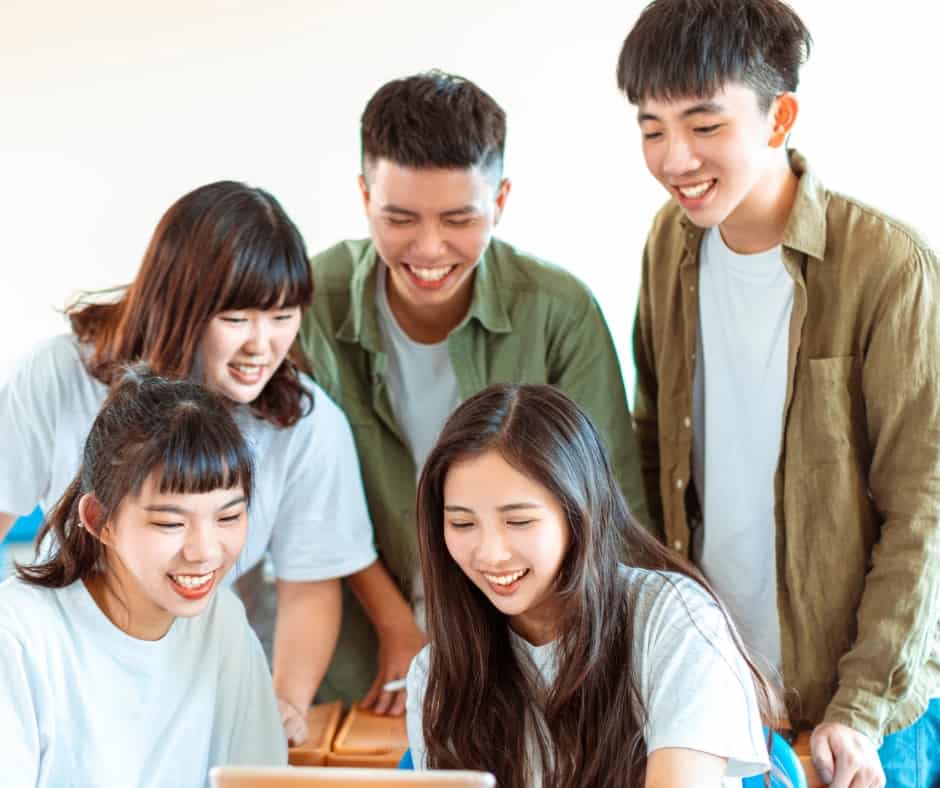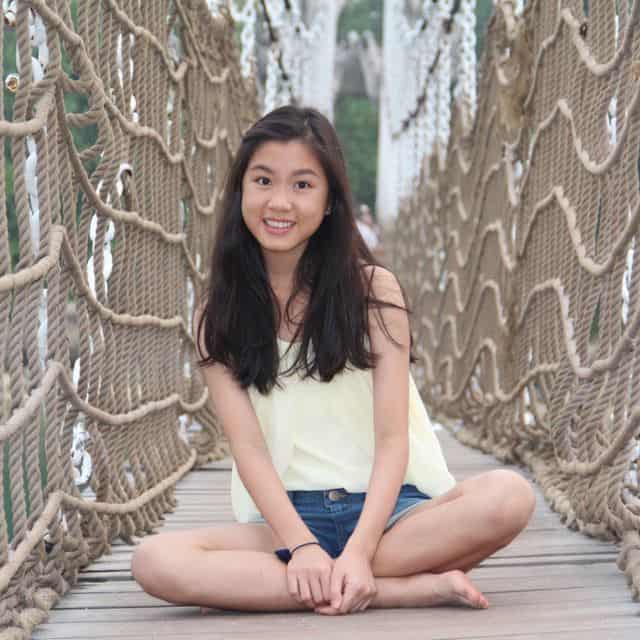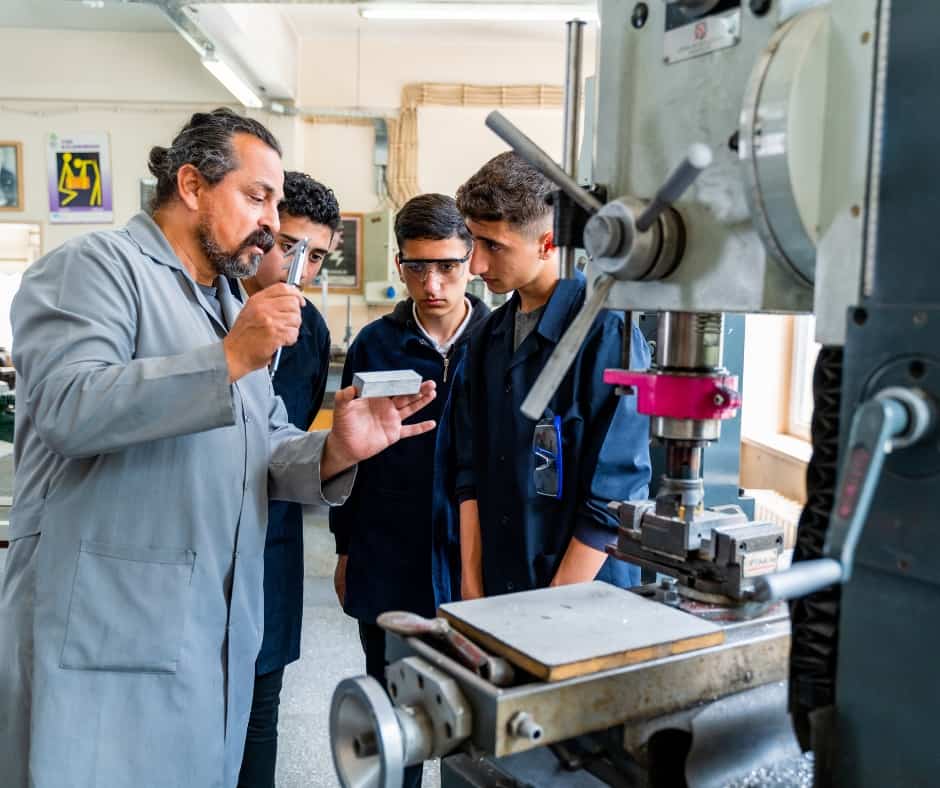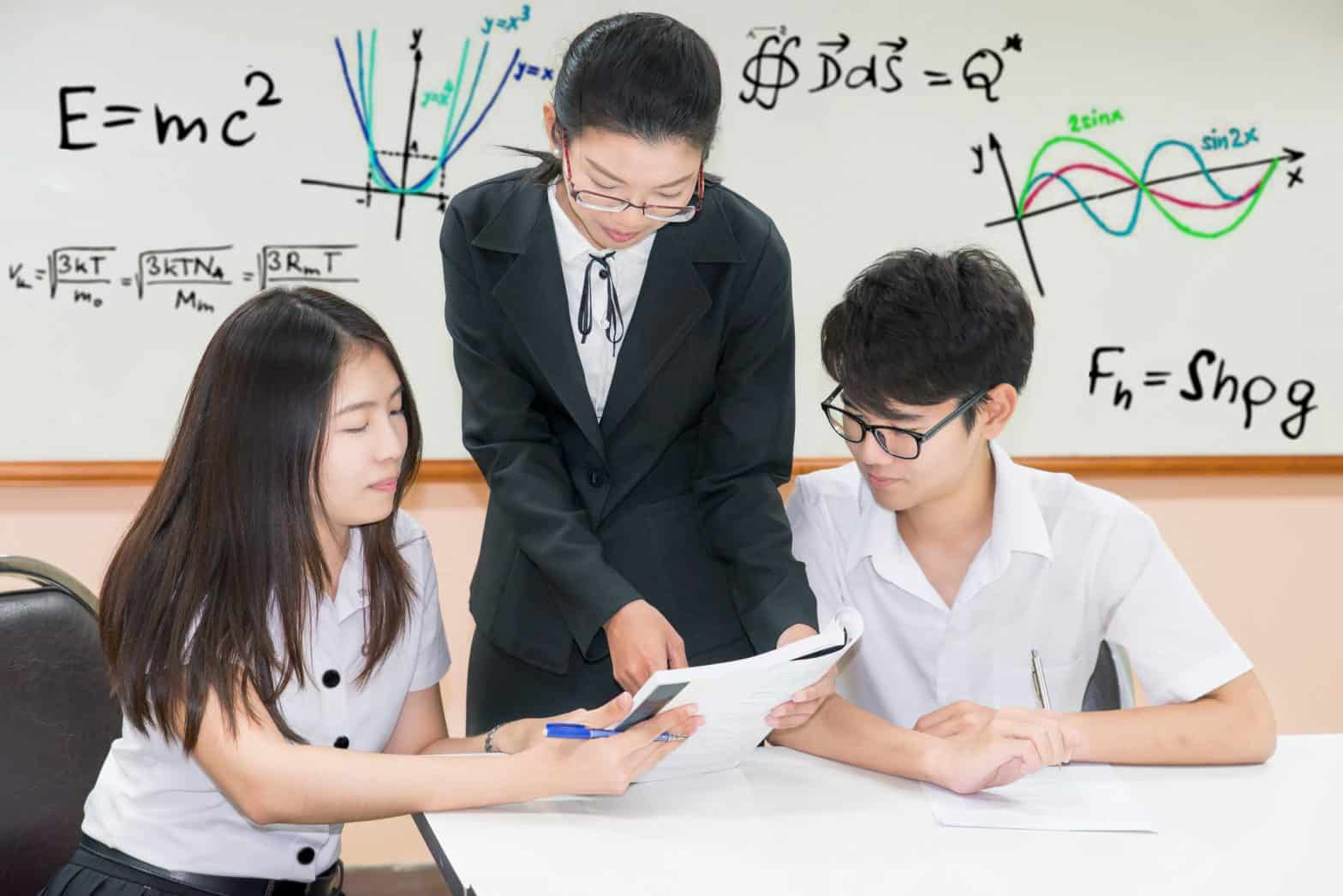
Guide Series: Post Secondary Options

This Guide Provides Comprehensive Information on Pathways available Post-Secondary. It is simplified and presented in an accessible format for students to make a good and informed decision.
List of Best Junior Colleges in Singapore – A Detailed Guide of JCs in Singapore
- Written By Sheryl Wong
- Updated on September 5, 2023
Content > Blogs > Guides > Guide-Post Secondary > List of Best Junior Colleges in Singapore – A Detailed Guide of JCs in Singapore
Articles In this Guide
1 – Junior Colleges in Singapore: An Overview
Junior Colleges in Singapore offer a two-year program preparing students for the GCE A-Level examinations or the pursuit of the IB diploma, whereas, Millennia Institute, on the other hand, provides a distinctive GCE A-Level program that includes the Commerce stream alongside the traditional arts and science streams found in other JCs. Undeniably, applying to JCs in Singapore is an important milestone for students seeking a well-rounded education and a pathway to university. As one of the top choices among students, JCs in Singapore offer a rigorous academic curriculum, comprehensive support systems, and vibrant extracurricular opportunities.
Presently, there are 22 Junior colleges in Singapore. Although when considering admission to a JC, it is important to note that you can apply to 19 JCs through the standard admission process, while 3 specialised JCs in Singapore accept applications only via their own admission process. These JCs are:
Concurrently, you can read our detailed article on Singapore sports school here.
2 – How do you apply for junior colleges in Singapore?
To secure admission to JCs or MI, JAE is the main admission exercise for students who have completed their O-Level examinations and are applying after receiving the results, however, there is also an alternative route, DSA-JC. Lets look at both of them:
2.1- Eligibility Criteria
For admission to JCs, the L1R5 score must not exceed 20, and students need to meet the grade requirements for specific subjects , on the other hand, for MI, the L1R4 score must not exceed 20, and students must also meet subject grade requirements.
2.2- The JAE route and Provision to Appeal
For students applying through JAE, undoubtedly JC Cut off points vary each year. Those who meet the cut-off points are generally eligible to apply to their preferred JC in Singapore. However, in cases where the cut-off points are not met, there is a provision to appeal to the MOE for consideration, in particular taking into account special circumstances or exceptional achievements of the applicant.
2.3- The DSA-JC Route
This route allows students to secure a place in a JC before taking the O-Level examinations. Specifically, each JC offers unique areas of specialisation for DSA-JC applicants whereby Students can apply based on talents in sports, CCAs, and specific academic areas that may not be fully reflected through their O-Level results.
However, students applying to junior colleges in Singapore via the DSA-JC route should be aware that accepting a DSA offer comes with commitments. In the situation that the student is admitted to a JC through DSA-JC, they are not allowed to:
- Take part in JAE, and
- Transfer to another school – if they accept DSA JC offer.
3 – Key Things To Consider When Choosing Junior Colleges In Singapore
Without a doubt, applying to junior colleges in Singapore is a significant milestone in your child’s academic journey. Hence, as parents, it is crucial to carefully shortlist JCs to make an informed decision. While selection based on cut off points for JC is important, it is crucial to understand and consider other factors that play a vital role in determining which JCs in Singapore are the best fit for your child.
Nevertheless, let’s look at a few important factors briefly.
3.1- Academic Programs and Special programmes
Besides common JC subjects like Physics, Chemistry, Biology, Mathematics, and Economics, some JCs in Singapore offer additional humanities or science subjects, as well as specialised Art programmes and research scholarships which allows students to enhance their skills and knowledge in specific disciplines. For example, HCI offers Computing and Further Mathematics as their niche subjects, Whereas, In contrast, NYJC offers Translation (Chinese) and Chinese Language and Literature to foster cultural understanding and language proficiency among their students.
3.2- Available CCAs (Co-curricular Activities)
Undeniably, universities often value students who have excelled in CCAs as it showcase their leadership, teamwork, and commitment to extracurricular pursuits. Therefore by participating in a CCA that aligns with their interests and strengths, students can develop valuable skills and accomplishments that enhance their university applications. Hence, considering the CCA options available and the potential for achievements in this area is an important factor to consider while choosing a JC.
3.3- Location and Accessibility
Significantly longer travel times can directly affect energy levels and productivity, which without a doubt can influence your child’s academic performance and overall learning experience in school. Obviously, not all Junior colleges in Singapore will be conveniently located, but choosing a JC that offers a reasonable commute time helps ensure that your child can maintain a healthy balance and optimise their potential to the fullest extent.
In addition, Check out our detailed factors to consider while choosing junior colleges in Singapore. Basically, we have covered everything you need to know.
4 – List of Best Junior Colleges in Singapore
| Name | Location | COPs for 2023 admissions Science / IB | COPs for 2023 admissions Arts | Niche Areas |
|---|---|---|---|---|
| Anderson Serangoon JC | Ang Mo Kio Ave 6 | 10 | 11 | • ETPS • TLEP |
| Anglo-Chinese JC | Dover Close East | 8 | 9 | • DEP • ELEP • ETPS • HSP • MEP |
| ACS (Independent) -IB Diploma | Dover Road | 5 | 5 | • ETPS • HSP • MEP • RSP |
| Catholic JC | Whitley Road | 13 | 14 | • ELEP • ETPS |
| Dunman High School | Tanjong Rhu Road | 8 | 9 | • BSP • CLEP • ETPS • MEP |
| Eunoia JC | Mount Sinai Road | 6 | 8 | • BSP • ETPS • HSP • MEP |
| Hwa Chong Institution | Bukit Timah Road | 4 | 5 | • AEP • BSP • CLEP • ETPS • HSP |
| Jurong Pioneer JC | Teck Whye Walk | 14 | 17 | • CLEP • ETPS • MLEP |
| Nanyang JC | Serangoon Ave 3 | 5 | 6 | • AEP • CLEP • ETPS |
| National JC | Hillcrest Road | 7 | 8 | • AEP • ETPS • HSP • MLEP • TLEP |
| Raffles Institution | Raffles Institution Lane | 4 | 5 | • ELEP • ETPS • HSP • MEP • MLEP • RSP |
| River Valley High School | Boon Lay Avenue | 8 | 9 | • BSP • ETPS |
| St. Andrew's JC | Sorby Adams Drive | 9 | 10 | • ETPS |
| St. Joseph's Institution (IB Diploma) | Malcolm Road | 7 | - | • ETPS |
| Temasek JC | Bedok South Road | 13 | 13 | • CLEP • ETPS • HSP • MEP |
| Tampines Meridian JC | Pasir Ris Street 71 | 8 | 9 | • DEP • ETPS • MLEP |
| Victoria JC | Marine Vista | 7 | 8 | • DEP • ETPS • HSP • RSP |
| Yishun Innova JC | Yishun Ring Road | 20 | 19 | • ETPS • MLEP |
| Millennia Institute | Bukit Batok West Ave 8 | 17 | 20 | • Management of Business • Principle of Accounts |
Glossary:
AEP = Art Elective Programme CLEP = Chinese Language Elective Programme DEP = Drama Elective Programme ELEP = English Language Elective Programme HSP = Humanities Scholarship and Programme | MEP = Music Elective Programme MLEP = Malay Language Elective Programme RSP = Regional Studies Programme TLEP = Tamil Language Elective Programme |
5- Junior colleges in Singapore – Does JC ranking matter?
While the JC ranking indicates Its performance and reputation, it is crucial to consider more than just rankings when choosing a JC. Since rankings are mostly based on the JC cut off points, overall they do not necessarily reflect the suitability of a junior college for an individual student. Instead, it is advisable to consider a range of factors, such as available subjects, extracurricular opportunities, and overall environment, to make an informed decision that aligns with the student’s needs and aspirations.
For example, if a student is passionate about a specific sport and wants to pursue it at a competitive level, it would be wise to consider a JC in Singapore known for its strong sports program, even if it may not be ranked among the top junior colleges in Singapore because with a strong emphasis on sports, undoubtedly the JC prioritises the availability of opportunities and resources in that specific field. Hence, by doing so, students receive the necessary support to excel and develop their skills, enriching their overall experience and enhancing their future prospects.
6- Let’s get to understand JC subjects
All the JCs in Singapore offer subjects at three levels – H1, H2 and H3. H2 subjects cover a wider range of topics with more content, while H1 subjects are condensed with less content. H3 subjects are optional and are catered for highly capable students passionate about a subject. Hence, they not included in rank point calculations.
JC subjects, that are mandatory for all the students, include H1 General Paper and H1 Project Work, which is completed in JC1. Whereas, Students who wish to take 4 H2 subjects can opt for H2 Knowledge and Inquiry instead of H1 General Paper.
In addition, to read in detail on General Paper, Please read – General Paper – Tips to score well in your GP exams.
However, it is important to note that unless students achieve at least a D7 grade in Higher Chinese at O-levels (grade requirement might be different for some JCs like HCI), H1 Mother Tongue is required in JC1.
In short, upon entering JC, students should choose JC subject combinations that align with their interests and goals. Alternatively, consulting with parents, teachers, and alumni who have insights into subjects and potential career paths can be valuable when deciding on JC subjects.
6.1- JC Subjects Combination Requirement
One key consideration in choosing JC subjects is understanding the subject combination requirements. overall, Students must decide between taking 4 H2 subjects or a combination of three H2 subjects and one H1 subject.
Subsequently, it is important to note that subject combinations cannot be changed unless students repeat JC1 with permission from the school.
In brief, JC subject combinations are divided into Arts and Science streams. In all combinations, there must be one contrasting subject. For instance, arts stream students take three humanities and a math subject, while science stream students take two sciences, one math, and one humanities subject.
However, some JCs offer additional humanities or science subjects like Music, Drama, Computing, and Further Mathematics, providing students with greater flexibility and choices.
In either case, here are some common JC subject combinations:
6.2- Common Arts Stream Combinations
- HELM: History, Economics, Literature, and Mathematics
- GELM: (Geography, Economics, Literature, and Mathematic
6.3- Common Science Stream Combinations
- PCME: (Physics, Chemistry, Mathematics, and Economics)
- BCME: (Biology, Chemistry, Mathematics, and Economics)
Moreover, students torn between Arts and Science subjects can explore a Hybrid stream that offers two subjects from each discipline. Although, please keep in mind that some JCs in Singapore may have limitations due to scheduling conflicts, potentially affecting the availability of specific hybrid subject combinations.
In addition, to know in-depth about JC subjects, please read our Article – Guide to Choosing JC Subjects.
7- Career Pathways from JCs in Singapore
Particularly, Junior colleges in Singapore offer a distinct pathway to higher education compared to polytechnics and ITE. While polytechnics provide specialised courses focusing on practical skills, and MI offers a three-year pre-university program emphasising applied learning, overall, JCs in Singapore provide a comprehensive academic curriculum preparing students for university education. JCs allow students to study a range of subjects before specialising in them at the university level.
Therefore, this flexibility will enable them to explore their interests and develop a strong foundation for future academic pursuits. Some JC graduates in Singapore also venture into entrepreneurship, leveraging their creativity and problem-solving abilities.
Likewise, to know more about all the options available post O level, please read – Post Secondary Options – Pathways available after O Level in Singapore.
8- Final Thoughts
In conclusion, applying to junior colleges in Singapore is a crucial milestone that sets the stage for a well-rounded education and a promising future. In summary, by exploring beyond the JC ranking and cut-off points for JCs in Singapore and considering overall suitability, students can make informed choices that align with their aspirations.
In essence, whether their goal is academic excellence, artistic expression, or future career prospects, junior colleges in Singapore provide a nourishing environment that empowers students to thrive and realise their full potential.
9- Frequently Asked Questions (FAQs) about JCs in Singapore
1. Do all Junior colleges in Singapore offer GCE – A level?
While most junior colleges in Singapore follow the traditional GCE A levels, in contrast , some offer the globally recognised IB curriculum. Notable examples include ACS (Independent) and St. Joseph’s Institution. These junior colleges provide state-of-the-art facilities and innovative teaching methods, diversifying the choices available to students and allowing them to shortlist junior colleges that suit their goals and preferences.
2. How many local Junior colleges are there in Singapore?
Presently, there are 22 Junior colleges in Singapore. Although when considering admission to a JC, it is important to note that you can apply to 19 JCs through the standard admission process because 3 specialised JCs in Singapore accept applications only via their own admission process. These JCs are:
- NUS High School of Mathematics and Science
- School of the Arts, Singapore SOTA
- Singapore Sports School
3. What is the application route for JCs in Singapore?
To secure admission to JCs or MI, students can choose between the JAE or the DSA-JC route. The JAE is the main admission exercise for students who have completed their O-Level examinations.
Additionally, the DSA-JC route allows students to secure a place in a JC before taking the O-Level examinations. Particularly, Each JC offers unique areas of specialisation for DSA-JC applicants, therefore, students can apply based on talents in sports, CCAs, and specific academic areas that may not be fully demonstrated in the O-Level exam results.
4. Is there a provision to appeal for JC admission?
Yes and NO.
For Students applying through JAE, JC Cut off points vary each year. Applicants who meet the cut-off points are generally eligible to apply to their preferred JC in Singapore. However, in cases where the cut-off points are not met, there is a provision to appeal to the MOE for consideration, taking into account special circumstances or exceptional achievements.
In addition, students applying to junior colleges in Singapore via the DSA-JC route should be aware that accepting a DSA offer comes with commitments. Meaning, If the student -is admitted to a JC through DSA-JC, they are not allowed to:
- Take part in JAE, and
- Transfer to another school – if they accept DSA JC offer.
5. What are mandatory JC subjects?
JC subjects, mandatory for all the students, include H1 Project Work, which is completed in JC1 and H1 General Paper. Whereas, students who wish to take 4 H2 subjects can opt for H2 Knowledge and Inquiry instead of H1 General Paper.
6. What is a Hybrid Stream in JC?
Students torn between Arts and Science subjects can explore a Hybrid stream that offers two subjects from each discipline. Although, it’s important to note that some JCs in Singapore may have limitations due to scheduling conflicts, potentially affecting the availability of specific hybrid subject combinations.
Loved Our Articles? Subscribes To Get Updates Directly To Your Inbox!
10- Explore Klassbook for JC Classes
To explore more Post Secondary classes, go through our list of various subjects here. Why not start with a trial class to gauge your child’s interest?

Meet Sheryl, a vibrant soul fuelled by an unwavering passion for languages. With her warm and approachable nature, she effortlessly connects with others, sharing experiences and inspiring them to pursue their dreams. In her free time, Sheryl embraces her creative side, exploring new cultures and immersing herself in their artistry. She loves to create digital graphics and develop her artistic skills, channelling her passion for languages into visually captivating expressions.
Loved Our Articles? Subscribes To Get Updates Directly To Your Inbox!
In this Article
Other Article in this Guide





